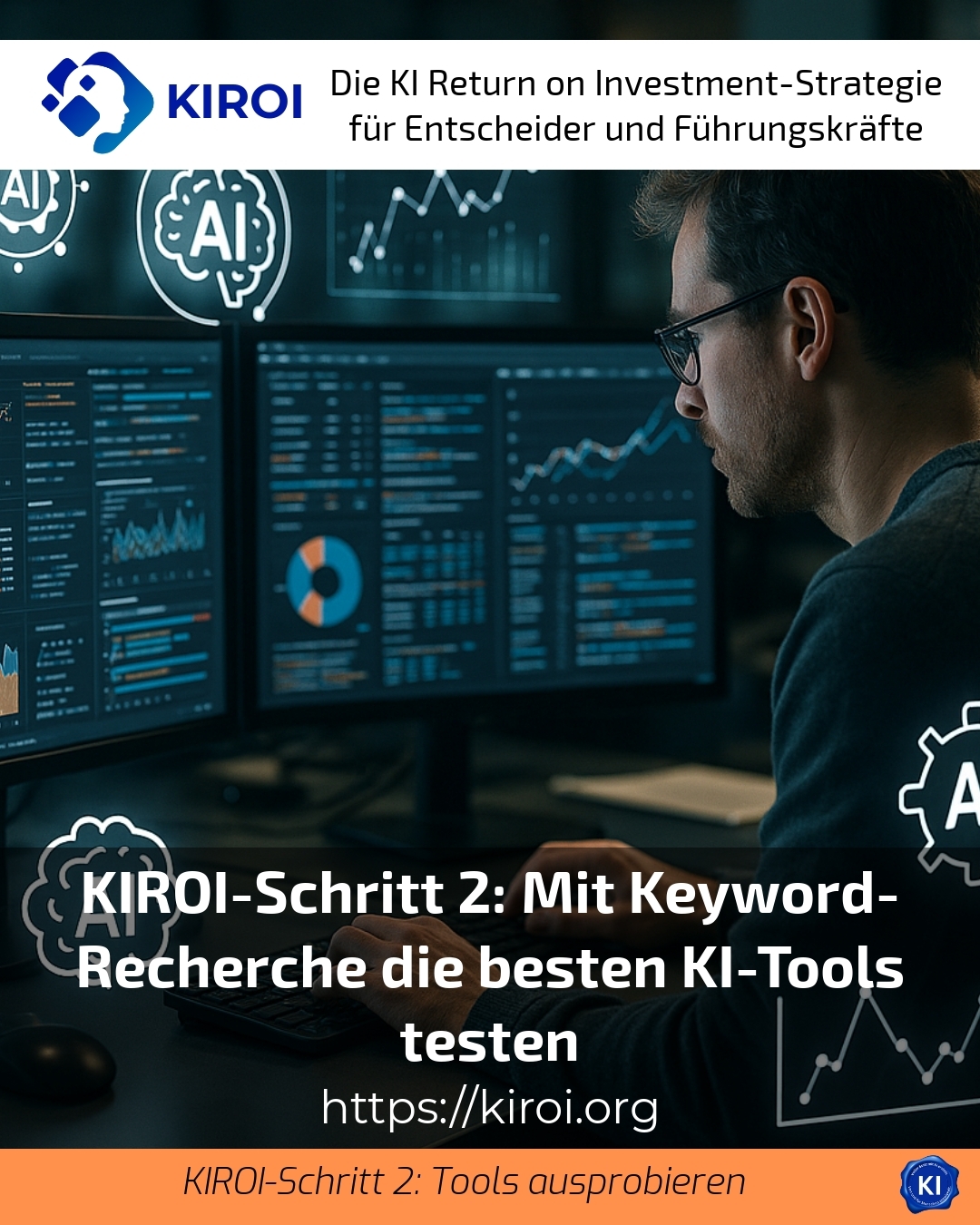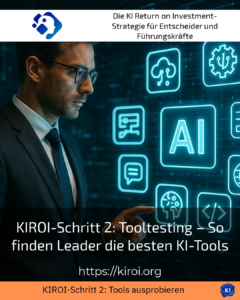Keyword research as the basis for testing AI tools
Many people involved in the integration of new technologies come to us with questions about the right selection and testing of AI tools. Keyword research helps us to take a targeted and data-based approach. It ensures that the appropriate terms and functions are identified in order to efficiently test AI tools and evaluate the benefits in your own context.
In practice, it is clear that many project managers are initially confused by the variety of AI applications available. This situation requires a structured approach so that the decision in favour of a tool is well-founded and the effort does not increase unnecessarily. Keyword research supports this by providing clear search terms and industry terms, which are then used for targeted market analysis and tool selection.
How keyword research structures the testing of AI tools
The second step in the selection of AI tools is often to deepen the keyword research. This involves filtering out those keywords from an initial list that have a high search volume and low competition density. This avoids an unproductive tool search and focusses the tests on tools that really correspond to the individual use case.
A simple example: In the media industry, those responsible are often looking for tools for automatic text generation, while in the financial sector the focus is more on tools for data analysis. Keyword research can be used to identify and prioritise relevant terms such as "text generation AI" or "AI data analysis tool".
In customer service, for example, research can bring up terms such as "chatbot AI integration" or "AI customer service automation". These keywords are the starting point for selecting the AI solutions to be tested. This is a proven way to achieve targeted and focussed testing.
Supporting tools for keyword research
Well-known tools include free and paid tools that can be used to easily analyse search volume, competition and cost per click (CPC). For example, programmes such as Google Search Console, Ubersuggest or specialised SEO tools help to systematically evaluate search terms.
These tools offer valuable insights into the actual demand and competitive situation. For example, keywords such as "AI copywriting tool" or "AI blog writing" can be analysed for their relevance to the topic of AI in content creation and then used as a basis for evaluating a tool selection.
Concrete examples from corporate practice demonstrate how keyword research serves as an efficient management tool:
KIROI BEST PRACTICE at company XYZ (name changed due to NDA contract)
The project team specifically searched for AI tools for automated text optimisation. Keyword research was used to identify terms with high potential. The selection based on this made it possible to systematically test various tools and implement a suitable product that met the marketing requirements. The data-orientation led to a sustainable decision in favour of using certain AI solutions in content creation.
KIROI BEST PRACTICE at ABC (name changed due to NDA contract)
As part of a digitalisation project, possible AI-supported analysis software solutions were evaluated. The keyword research focussed on search terms relating to "data analysis AI" and "automated business insights". This enabled the team to filter out promising tools and validate them through practical tests. The project benefited from a targeted and reproducible selection method.
KIROI BEST PRACTICE at DEF (name changed due to NDA contract)
For the integration of an AI chatbot, the team carried out extensive keyword research that included terms such as "AI chatbot customer service" and "customer support automation". This research formed the basis for the test phase of several AI tools. This enabled the company to select a solution that would optimise communication processes without compromising the existing quality of service.
The importance of search intent in keyword research
User search intent is another important aspect of keyword research and therefore of testing AI tools. It provides information on whether a search term is primarily informational, transactional or navigational. This distinction helps to tailor AI solutions precisely to business requirements.
For example, if a company wants to roll out AI tools to optimise search engine optimisation, information-oriented keywords are key. On the other hand, if you are looking for specific application software, for example for automation purposes, you should focus on transactional terms in order to find and test precisely these products.
Impetus and support through professional coaching
Many clients report that the support provided by coaching in keyword research and tool evaluation gives them valuable impetus. KIROI coaching accompanies them through these steps and helps them to implement the research methodically. This significantly reduces uncertainties and wrong decisions when testing AI solutions.
The aim is not to sell ready-made solutions, but to provide well-founded support for projects and guidance for individual selection. The support facilitates the transition from theoretical research to practical testing of the tools and ensures lasting learning experiences.
My analysis
Keyword research is essential in order to select the AI tools that best meet your requirements from the wealth of different AI tools available. It ensures a data-based decision-making process and enables a targeted and efficient test phase. Because the search intention and competitive density are taken into account, wastage is minimised. Qualitative support such as KIROI coaching creates further security in the complex environment of AI integration.
Further links from the text above:
[1] Keyword research guide | Step-by-step guide
[2] Keyword research: A guide for beginners - HubSpot Blog
[4] Keyword research - a step-by-step guide
[5] Free SEO keyword research tool
[7] Keyword research - step-by-step guide
For more information and if you have any questions, please contact Contact us on the topic or read more blog posts on the topic Artificial Intelligence Blog here.















